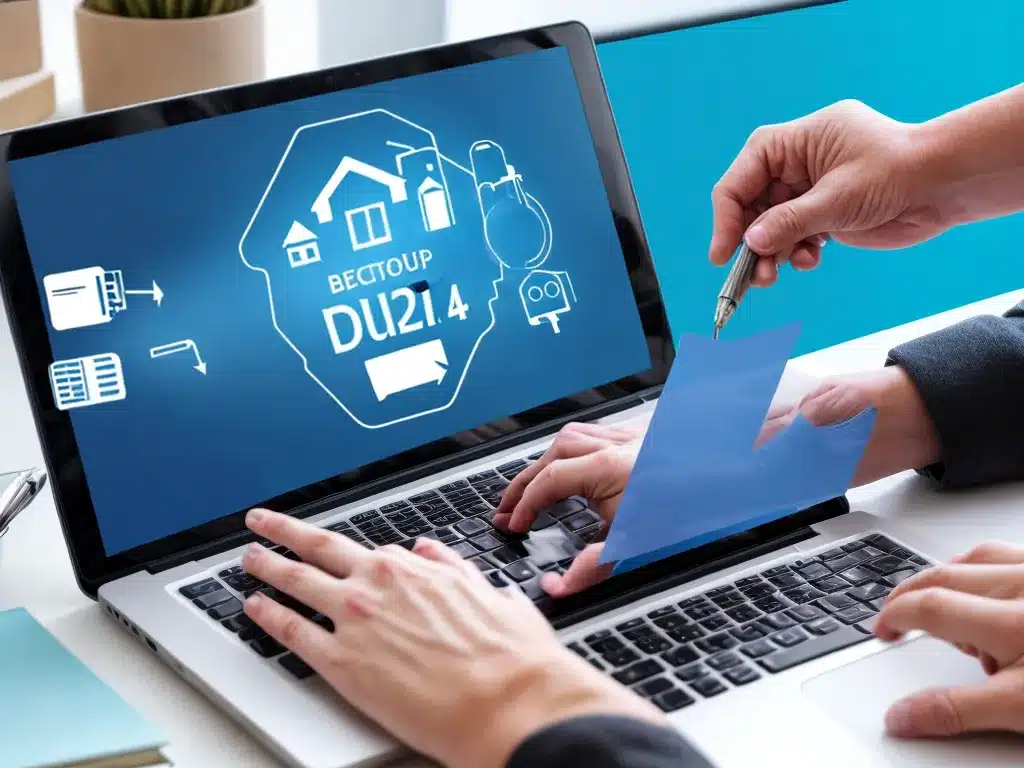
Introduction
Having a solid backup solution in place is one of the most important things you can do to protect your data. As someone looking to implement a new backup system in 2024, you likely have a lot of questions about the various options available and what will work best for your needs. In this comprehensive guide, I will provide an overview of the top backup solutions for both home users and businesses, covering everything you need to know to make an informed decision.
Backup Options for Home Users
For home users, there are three main types of backup solutions to consider: external hard drives, cloud backup services, and NAS devices. Here is an overview of each:
External Hard Drives
-
Overview: External hard drives connect to your computer via USB and allow you to manually back up specific files and folders. Models with 1TB+ of storage are common.
-
Pros: Inexpensive, fast initial backups, you control what gets backed up.
-
Cons: Require manual backups, risk of hardware failure, only as current as your last backup.
-
Top picks: WD My Passport, Seagate Backup Plus, Toshiba Canvio Basics.
Cloud Backup Services
-
Overview: Cloud backups automatically save your data to secure remote servers owned by companies like Carbonite, IDrive, Acronis, and Backblaze.
-
Pros: Automated backups, offsite storage protects against local disasters, easy recovery.
-
Cons: Monthly/annual costs, slower initial backup, privacy concerns, need internet connection.
-
Top picks: Backblaze, IDrive, Acronis True Image.
NAS Devices
-
Overview: Network attached storage (NAS) devices are dedicated appliances designed for backups. Store data locally and access it from anywhere.
-
Pros: Automated backups, built-in redundancy, access data remotely, multi-user support.
-
Cons: Upfront cost, complex setup, still susceptible to theft/damage.
-
Top picks: Synology DS220+, QNAP TS-253D, Asustor AS5304T.
Backup Solutions for Businesses
Businesses have additional backup requirements related to uptime, scalability, security, and application support. Here are the top options:
Cloud Backup & Recovery
-
Overview: Cloud-based backup tailored for business infrastructure. Offload backups to cloud for efficiency and disaster recovery.
-
Pros: Automated offsite backups, fast disaster recovery, encrypted security, scalable storage.
-
Cons: Recurring costs can add up for large data sets, slower restores from the cloud.
-
Top picks: Veeam Backup for Microsoft 365, Asigra, Acronis Cyber Protect Cloud.
Physical Servers & Media
-
Overview: On-premises backups to physical tapes, drives, appliances or dedicated backup servers located in-house.
-
Pros: Faster restores from local media, better for large data volumes, full control over hardware.
-
Cons: Manual management, hardware maintenance, risk of device failure/theft.
-
Top picks: Dell EMC Data Domain, HPE StoreOnce, Quantum Scalar tape libraries.
Snapshot-Based Backups
-
Overview: Point-in-time “snapshots” of data to restore previous versions of files, VMs, databases, etc.
-
Pros: Frequent recovery points, space efficient, no separate backup jobs needed.
-
Cons: Dependence on primary storage, typically local only.
-
Top picks: Veeam Availability Suite, VMware vSphere, NetApp ONTAP tools.
Backup as a Service (BaaS)
-
Overview: Fully managed backup solutions provided by a hosting company. Hardware, software, and storage all hosted offsite.
-
Pros: Turnkey setup and management, predictable costs, encrypted security.
-
Cons: Loss of direct control, bandwidth caps on data transfer.
-
Top picks: Amazon Web Services Backup, Microsoft Azure Backup, Acronis Cyber Backup Cloud.
Key Factors to Consider
When evaluating backup solutions, keep these key factors in mind:
-
Backup scope – What do you need to backup? Operating systems? Files and folders? Entire system images? Databases?
-
Restore requirements – How quickly do you need to restore data? Will you need granular restores or full system restores?
-
Data security – How is your backup data encrypted? What security standards does the provider adhere to?
-
Size of data set – Local backups can be impractical for large or rapidly growing data sets.
-
Budget – Home users may prioritize low cost, businesses need to calculate total cost of ownership.
-
Ease of use – Look for solutions that simplify backup management and centralize monitoring.
Recommendations
For most home users, an external hard drive provides an affordable and approachable option, while cloud backup services offer unmatched convenience and offsite protection.
Businesses should strongly consider leveraging the cloud with services like Veeam or Acronis to automate backups while retaining control over core infrastructure. For larger environments, on-premises backup servers and media continue to excel.
Matching the right backup solution to your specific needs and budget is key to ensuring your data remains protected in 2024 and beyond. Let me know if you have any other questions!












